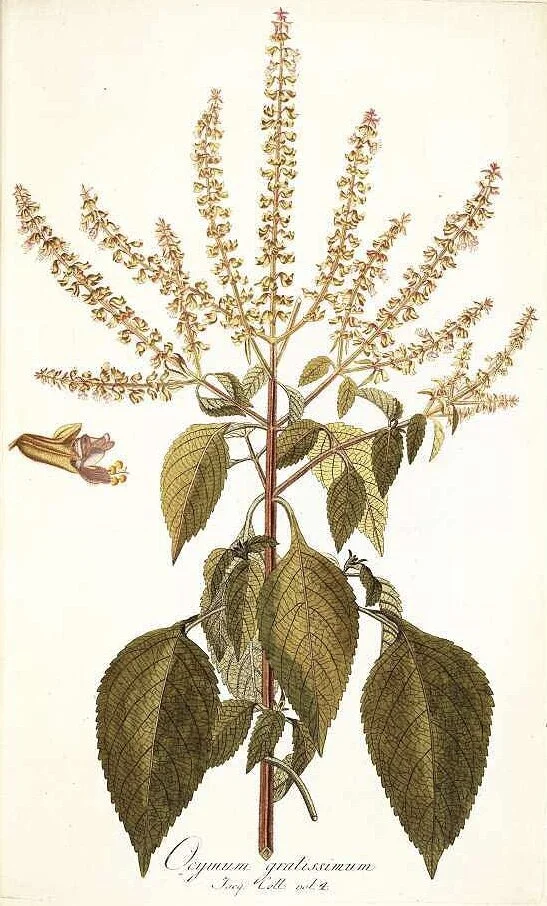Ocimum gratissimum
Ocimum gratissimum
OCIMUM GRATISSIMUM SEEDS
Ocimum gratissimum
This ancient African native is one of the most sacred plants in India. Often listed in the seed trade as “Tree Basil". Known in Ayurveda as “Ram Tulsi”.
Cultivated for thousands of years throughout Africa and tropical Asia for various medicinal and ritual purposes, there are at least three varieties currently grown commercially for distillation. The primary chemical constituent of these is either eugenol, thymol or citral. These seeds will produce plants that, to my nose, are of the eugenol chemotype. Fresh or dried leaves make a pleasant and powerfully medicinal tea. Fresh leaves may be pressed for juice or ground to a paste. Historically prescribed in Ayurveda. Ancient ethnobotanical still employed today in several African countries.
Substantial fuzzy foliage on a tall upright single stem. In frost-free zones this plant will become a long-lived woody shrub and may be pruned to shape. Suitable for bonsai. In India the wood is carved into beads for the sacred Tulsi Mala.
These seeds are best started indoors: press seeds onto the surface of moist soil, just barely dusting with fine vermiculite. Mist carefully but thoroughly with warm water and cover with plastic to maintain moisture. Kept at 75°F in bright light seeds should germinate within 2-4 weeks. Uncover germinated seeds promptly. Prick out seedlings to grow on in individual pots once they have true leaves.
Ocimum gratissimum is a tropical perennial that can live happily in a container for several years. Flowering does not seem to diminish the health of the plant nor the medicinal quality of the leaves. Mature foliage can become surprisingly long and leathery. Frequent harvests will encourage tender new growth. Established plants will tolerate some shade and are easily overwintered indoors.
Packet contains at least 50 seeds.
